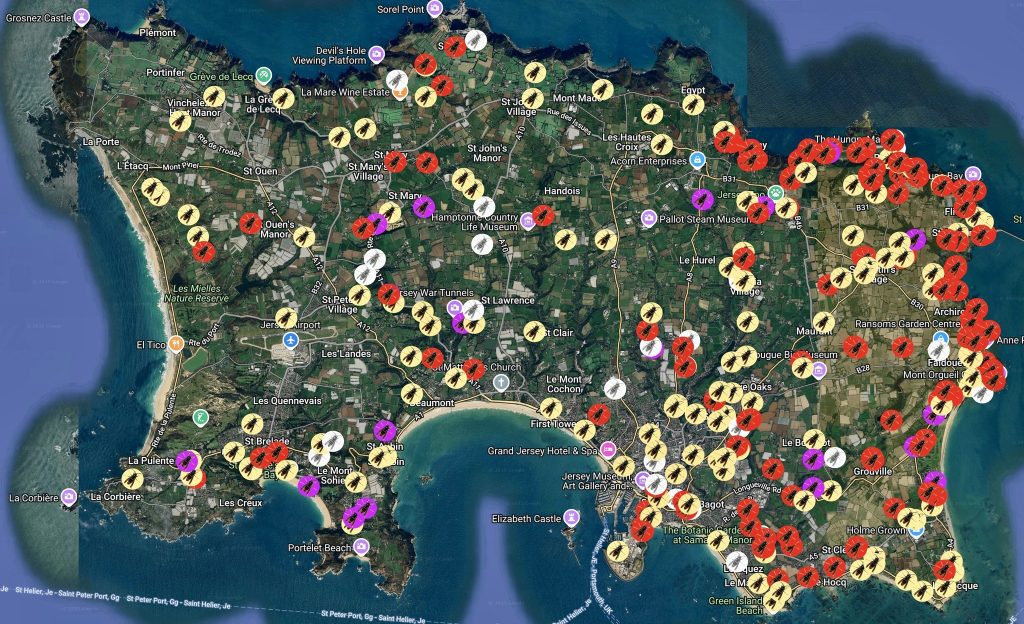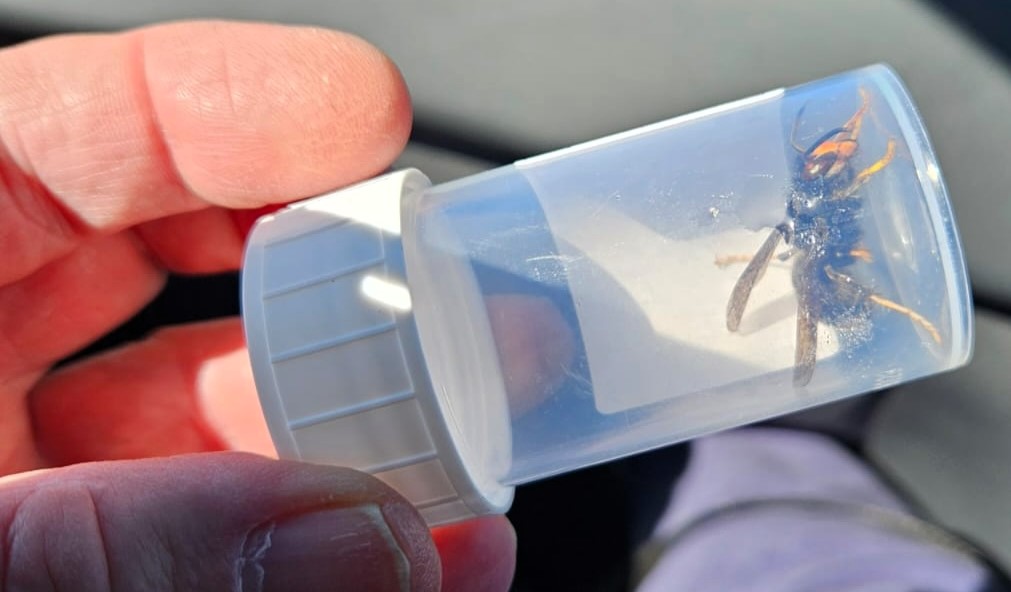Millions of killer Asian hornets are poised to invade Britain after 500 nests were found.
The flying insects have exploded in numbers on Jersey.
The Channel Island acts as their stepping stone to mainland UK.
READ MORE: Crowds cheer as man rips Union flags from 50 lampposts
The number of nests discovered is four times more than last year.
Each one can contain up to 10,000 hornets.
Jersey, the largest of the Channel Islands, is now the front line in the fight to stop the pests swarming into the UK.

The hornets arrived from mainland Europe nine years ago and are now well-established.
“The number of people being stung continues to rise,” John De Carteret, founding member of the Jersey Asian Hornet Group, told Need To Know.
“The unrelentingly high number of Asian hornet reports from across the island continues to put tremendous pressure on the Jersey government’s Asian hornet reporting system.
“Because nests and their destruction must always take precedence, it’s now reached the point where those reporting Asian hornet sightings may feel that their report is getting less follow-up.

“It’s no less important, but there just isn’t anyone free to act on it.
“It’s very simple, more support is needed, and more people to get actively involved.
“The combined efforts of the two government invasive species officers, along with professional pest controllers and volunteers, are trying to keep up with the sheer logistics of nest treatments.
“But at this time of year, there always seems to be a backlog of nests awaiting treatment.
“Right now, we have recorded 469 Asian nests.
“I’m still quite positive, even though these numbers are many times more than those of previous years.

“This is because we have found all these, with more public awareness, engagement and reporting, experienced volunteer trackers.
“While accepting that every one of those queens or nests would have gone on to the reproductive stage, how bad would our situation be if only a tenth of those had made it through?”
Earlier this year, a study revealed Asian hornets devour more than just honey bees.
University of Exeter researchers found 1,400 different species in their guts – including wasps, flies, beetles, butterflies, moths and spiders.
But honey bees were still their favourite prey, turning up in every nest tested.
READ MORE: Motorist and biker confront each other in Britain’s most polite road rage spat










